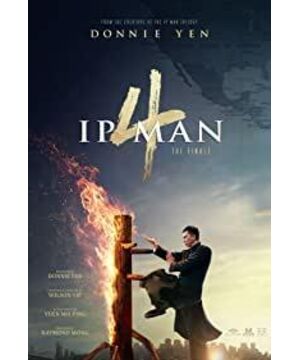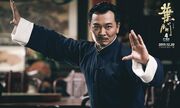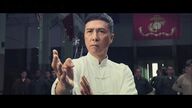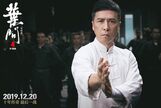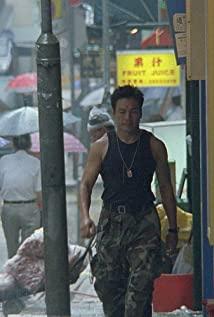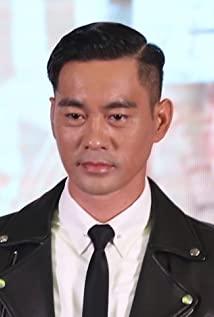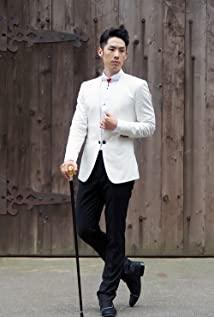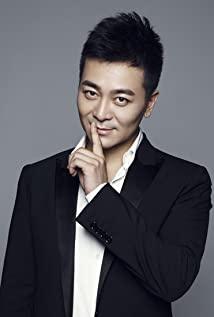I have said enough in the short comment area before, but I still want to say a few more words about the end of a series, or even a kung fu movie that may be hard to see in Hong Kong movies and even Chinese movies in the future.
As a kung fu movie fan, it is definitely not too objective to evaluate this movie. In fact, in my opinion, Donnie Yen has created two roles in his life, one is the police officer Ma Jun, and the other is the grandmaster Ip Man.
Ma Jun represented the peak period of Donnie Yen's acting. At that time, he was in his early 40s and was in his prime. His acting experience was reasonable, and he also had a lot of experience in action design. At that time, people said that Donnie Yen could not act, so the characteristics of Ma Jun's role Just fight, if you don't agree, just do it.
Although Ma Jun is very brainless, the emotional scenes of the film can only be handed over to other supporting roles, but Ma Jun left behind the most classic action scenes of Chinese movies.
Ip Man is a transformation of Donnie Yen. He no longer plays the role of a hot-tempered tough boy, he begins to become forbearance, and begins to have more characters' reactions to friendship, family affection, and love. Although acting as a star is still a shortcoming, fortunately, the role of Ye Wen did not have the moment to test his acting skills by laughing and crying.
From Ma Jun to Ip Man, Donnie Yen has transformed from a tool-type man used for mechanical serenity to an ordinary man with flesh and blood, and at the same time has created a "chivalrous man" who bears the feelings of his family and country. After Chen Zhen and Bruce Lee, kung fu films and even the Chinese world are another influential cultural symbol. (Refer to the multi-version Ip Man remake of the follow-up style)
As an actor, as a star, it is enough to have such two roles in a lifetime.
However, it is not an exaggeration to say that the "Ip Man" series is the last afterglow of kung fu films. In today's public opinion environment, whether it is kung fu films or traditional martial arts, it is a kind of despised existence. The audience no longer recognizes the simple patriotism conveyed by kung fu films, and no longer thinks that Chuan Wu is really as "playable" as in the film.
Some people even say that the Ip Man series is a fast food movie under the banner of love.
I don't deny that kung fu movies are very commercial and fast food, but I don't agree that this is to make money in the name of patriotism.
For a long time, there have been a number of Hong Kong filmmakers who have inherited the "family, country and world" genes of Chinese culture, and have tirelessly produced a large number of patriotic films. When Huo Yuanjia and Chen Zhen were all the rage in the 1980s, there weren't many movie theaters in mainland China. Was this just to make money, or was it simply because they wanted to shoot and watch?
The group of filmmakers with family and country feelings may not have changed, but the audience has changed.
It is said that the Ye Wen series hyped patriotic feelings, but in fact, Ye Wen in the film did not intend to tie himself up with patriotic characters at all. People are bullied to the head. So I think the values conveyed by the Ip Man series are not the kind of aggressive "China No. 1", nor the kind of "death at a distance" that can threaten the hegemony of the lighthouse country, but the traditional Chinese kind Forbearance comes first, neither humble nor arrogant.
"I don't bully you, so don't bully me. The first time you bullied me, I will endure it, the second time I will bear it, the third time I can't bear it anymore, and I will fight back." I think this kind of value is enough Moderate.
Bruce Lee may be more suitable for this "hype patriotic character" hat, but considering the era when Bruce Lee lived, the Chinese were discriminated against everywhere, why don't they need a boost of national self-confidence?
In "Ip Man 4", Bruce Lee, played by Chen Guokun, has a few scenes and beats foreigners violently. Some people may think that Bruce Lee is too crazy, but I want to say that even if Bruce Lee was crazy and good in Hollywood back then, there are still big foreign directors (Quentin) who dare to insult him in filming, Bruce Lee obviously still did not leave a strong impression. in the American mind.
You said that in a few decades, will the Americans make another similar film to insult Jackie Chan?
From "Ip Man 1" to "Ip Man 4", it's really exciting to see these masters compete, but it's a bit of a waste of furniture.
It is a pity that with the decline of Chuanwu, there are fewer and fewer audiences who can understand these martial arts routines. For example, in "Ip Man 2", a master used the "Bagua Swimming Palm". He always turned his back to Ip Man in the ring. The audience may not understand why Ip Man didn't attack while he turned around. In fact, this is gossip Palm is deliberately selling flaws, and once the opponent attacks, Baguazhang will immediately counterattack with unexpected moves.
And I like the Ip Man series, not only the kung fu of the masters of various schools, but also the sophistication in the details. In the first part, Master Liao, who went to eat, drink, and beg for beatings, Li Zhao, who was a traitor but had an unshakable conscience, the second part, Jinshan Zou, who rehabilitated his evil spirits, the honest and reliable Fei Bo, and the third part, who cherished each other and fought against each other, Zhang Tianzhi, Every supporting role has flesh and blood, and every relationship is the friendship of a gentleman. This is the traditional Chinese way of dealing with the world.
When it comes to "Ip Man 4", it is about cultural differences.
The first is the difference between the conservative Chinatown masters and the enlightened Bruce Lee.
The old masters felt that Chinese martial arts could not be spread, but the actual result was obviously that "the times have changed". On the other hand, even if today’s martial arts are not gymnastics, they are not much better than gymnastics. What is really kept secret are weapon drawings. What are your martial arts secrets?
Another difference is reflected in the two duels.
In the duel between Ye Wen and Taijiquan Master Wan, Master Wan found out that Ye Wen's arm was injured, so he used only one hand to fight, which is a traditional martial arts performance. (It cannot be simply attributed to eastern culture, because fairness is an important factor whether it is eastern martial arts or western chivalry)
But the American values are not like this. Officer Patton found that Ye Wen's arm was injured, not only did he not let him, but he also deliberately hit the wounded place .
Times have changed, when Song Xianggong suffered a moral loss in the battle of Hongshui.
Therefore, after careful analysis of the last matchup, one can see the change in Ye Wen's mentality.
Barton said that the duel was "no rules", but Ye Wen still set limits for himself. For example, he had a trick to poke the opponent's eyes, but he just scratched the opponent's cheek.
After missing this opportunity, Ip Man started to be at a disadvantage, and was beaten so badly by Patton that he couldn't stand up for a while. In fact, at this time, Barton's conceit harmed him. Since it was "no rules", if he didn't stand taunting, but continued to attack the fallen Ye Wen, Ye Wen would definitely not be able to stand up again.
But he gave Ye Wen a chance to breathe, and after realizing that the other party had been attacking his injured arm, Ye Wen also decided not to keep his hand, and also used the crotch kick and throat seal that he had never had the heart to use in the previous episodes.
In the end, Barton was KO.
In fact, it seems better for Bruce Lee to fight in the last battle. It can reflect some kind of alternation of old and new, and there are successors, but this is Ye Wen's personal film after all, and it is necessary to give Ye Wen a final battle.
"Ip Man 4" is not without its flaws. For example, Wu Yue played the role of Sammo Hung in the second film. However, there is a reason for Sammo Hung's defeat, anyway. Wu Yue is too miserable, isn't it? And Scott Adkins discriminates against the yellow race while using karate, but karate was also invented by the yellow race.
In addition, the films made by these Hong Kong people and Chinese people also have some embarrassing points in their own positioning. For example, the Chinese official played by Wu Jianhao, who wants to promote Chinese kung fu in the training of the US military, claims that this It can improve the combat effectiveness of the US military. Is this to enhance national self-confidence, or is it the mentality of naturalized people who are eager to seek recognition? In the 1960s, not long after the U.S. ceased war with China, what if the U.S. military used this set of skills to deal with the Chinese? Does it follow Master Wan's "Mr. Dongguo" theory?
Of course, hand-to-hand combat in modern warfare is no longer so important, and the ending subtitles that the introduction of Chinese Kung Fu in the training of the US military also shows that the United States has always had the advantage of being good at learning from opponents.
There is another advantage, that is, I like money, and I like to directly ask for benefits.
Traditional Chinese people value agriculture and suppress business. Just like Ye Wen used to guard so much wealth, his friend Zhou Qingquan asked him to invest in business and he did not agree. It's different when I arrive in the United States. The principal said directly: 10,000 yuan, and I will enroll immediately.
This was the first lesson on capitalism taught by the principal to Master Ye. Money is a good thing, and money is a privilege.
Even Master Ye, there are many things that can't be settled.
In this series, Ye Wen has never advocated how omnipotent individual heroism is, nor did it tell you what to do if you have a patriotic heart. At that time, Ye Wen could "hit ten at a time" in the Japanese military camp, but he still had to hide far away when he encountered Japanese military vehicles. Applause - fortunately Americans still respect the strong.
Heroism and patriotism are not panacea, but the people will always need a hero as an example. Just like the United States has superheroes, the Chinese also need all kinds of heroes.
View more about Ip Man 4: The Finale reviews


